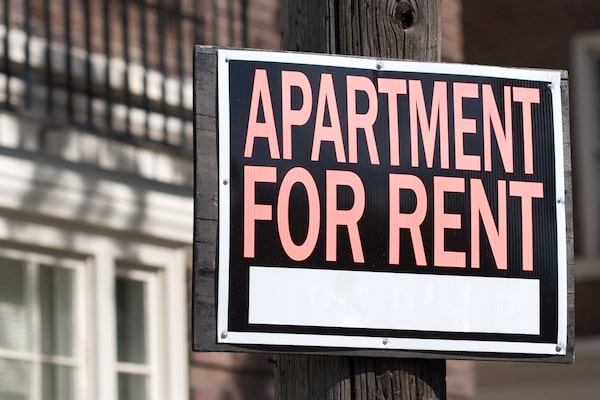
To apply for the tax-free $500 government top-up, Canadians must be at least 15 years of age and have paid rent in 2022 that was equal to at least 30 per cent of their net income in 2021.Roger McClean/iStockPhoto / Getty Images
It’s become harder to find a place to call home in Canada, as the cost of housing has soared in recent years because of interest rates and rising immigration. Starting this week, low-income Canadians will be able to apply for a one-time, tax-free $500 government top-up to the Canada Housing Benefit program aimed at supporting an estimated 1.8 million renters, including students.
Applications will open on the federal government’s website on Monday morning. Here’s what you need to know.
Who is eligible for the $500 payment?
To qualify for the top-up benefit, Canadians must be at least 15 years of age and have paid rent in 2022 that was equal to at least 30 per cent of their net income in 2021. In order to be eligible, families must also have a net income of $35,000 or less, while eligible individuals are capped at a net income of $20,000 or less. Applicants will also need to have filed their 2021 tax returns and be able to prove that they are paying their own rent.
Residents of Canada in 2022 for tax purposes are eligible for the benefit.
How to apply for the Canada Housing Benefit program
Applicants may apply on the federal government’s website, where they will be asked to provide documentation through a series of online questions. Canada’s Department of Finance said applicants will be asked for their address(es), landlord’s contact information and how much they paid in rent in 2022. The Canadian Revenue Agency may contact selected candidates to verify the information on their applications.
Before applying, the Department of Finance has asked that applicants ensure they have access to their CRA accounts and have set up direct deposit with the agency.
Understanding Canada’s housing crisis
Major cities in Canada have been gripped by a deepening national crisis as the cost of housing soars from province to province, and increasing cost of living is making affordable housing even less of a reality for many Canadians, especially those living in big cities such as Toronto and Vancouver. Homelessness has reached crisis levels in many cities, shelters are chronically full and social-housing waiting lists are years long.
Rental rates have been increasing rapidly since the Bank of Canada started raising interest rates to get inflation under control.
To top it off, the coming decades will see Canada’s population swell from 38.2 million in 2021 to upwards of 52 million by 2043, according to Statistics Canada – and it is unclear if the country will be able to keep up.
In April, the federal government acknowledged the looming crisis and announced a slew of new measures in the 2022 budget that included $10-billion to make housing more affordable for Canadians. Economists say money for low-cost housing will have a meaningful impact on affordability for the lowest-income Canadians. But they worry that providing money for first-time homebuyers and other such measures will drive up the prices in an already overheated housing market.
What the experts think
Housing advocates say the one-time $500 payment will do little to help Canadians against the backdrop of soaring costs owing to rising inflation.
“A means-tested, one-time payment of $500 for some low-income renters will do nothing to alleviate a housing crisis caused by landlords being enabled to extract rents so high that close to 300,000 renter households have unaffordable to extremely unaffordable housing costs in Toronto alone,” said Cole Webber, a community legal worker at the Parkdale Legal Clinic in Toronto who helps tenants fight renovictions – when a landlord evicts a tenant by claiming they will complete major renovations.
Mr. Webber pointed to renovictions and above-guideline rent increases as problems plaguing Canadian renters.
Editor’s note: (Dec. 12, 2022): An earlier version of this article incorrectly said only Canadian citizens are eligible for the benefit. This version has been corrected.